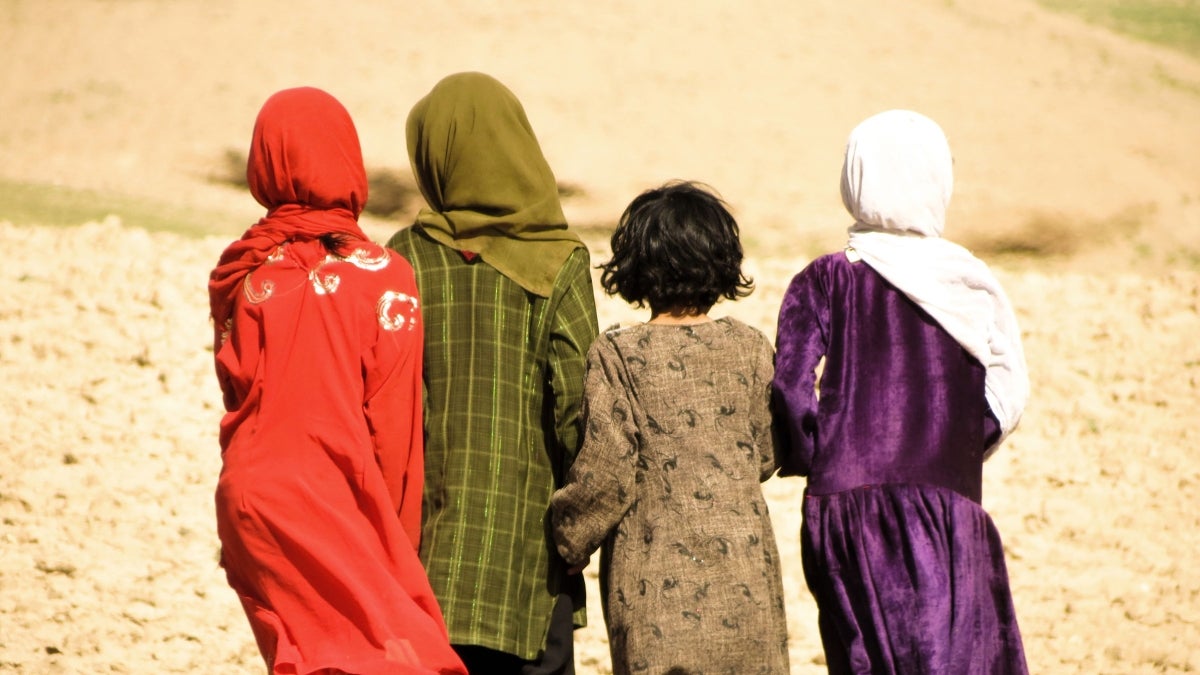Arizona is expected to receive 1,610 Afghan evacuees, and Arizona State University is preparing to help as many as possible with their education-related needs when they arrive.
The Educational Futures for Afghan Refugees fund was established by the ASU Foundation for a New American University to help Afghan refugees with pathways into the ASU community as K–12 and higher education students who may need assistance with tuition and education support, technology support, room and board, English language courses and more. It will also offer faculty assistance for Afghan refugees who will teach at ASU.
"It's very difficult to be an exile," said Pamela DeLargy, executive director of Education for Humanity, which provides educational access for refugees locally and globally. "Anything ASU can do to help people is a good thing. This refugee crisis came at a time when ASU was already putting together a lot of pieces to be more refugee-friendly."
When people flee their countries, to be declared refugees they have to have a well-founded fear of persecution and cannot be forced back into dangerous circumstances, said Daniel Rothenberg, co-director of the Center on the Future of War.
"Refugees are among the most vulnerable communities and have great needs," he said. "As a major public research university committed to innovation, there are a lot of programs available to assist refugees."
Many refugees have significant professional qualifications in their home countries but are unable to continue their careers in the United States without additional courses, certifications or English language skills.
There is a group of ASU leaders working with Afghan scholars to help journalists, professors and other professionals integrate into the ASU community. There are hundreds of people who have applied already, Rothenberg said.
"For the last 20 years, Thunderbird has been training women leaders in Afghanistan that have gone on to rebuild their country," said Sanjeev Khagram, director general and dean of Thunderbird School of Global Management. "Many of them are now in danger, and many have left. It's very critical for us to step up and welcome these incredible leaders and citizens who are now having to rebuild their lives here. For me this is a very personal matter. I, too, am a refugee."
ASU has several programs currently established, and many more in the works, with the aim of helping Afghan citizens — some of whom are ASU alumni, students or their families. Donations to this fund will provide resources where they are needed most.
Access to housing, social resources and education are critical to helping refugees with their long-term success, DeLargy said.
"There are a lot of people in the world that would do anything to have an education and a career," DeLargy said. "Nobody wants to leave their home. They wouldn't leave unless their lives were threatened, and they thought they couldn't survive. They could contribute a lot to our country, but they need support to get going."
Top photo from iStock
More Law, journalism and politics
Can elections results be counted quickly yet reliably?
Election results that are released as quickly as the public demands but are reliable enough to earn wide acceptance may not always be possible.At least that's what a bipartisan panel of elections…
Spring break trip to Hawaiʻi provides insight into Indigenous law
A group of Arizona State University law students spent a week in Hawaiʻi for spring break. And while they did take in some of the sites, sounds and tastes of the tropical destination, the trip…

LA journalists and officials gather to connect and salute fire coverage
Recognition of Los Angeles-area media coverage of the region’s January wildfires was the primary message as hundreds gathered at ASU California Center Broadway for an annual convening of journalists…


